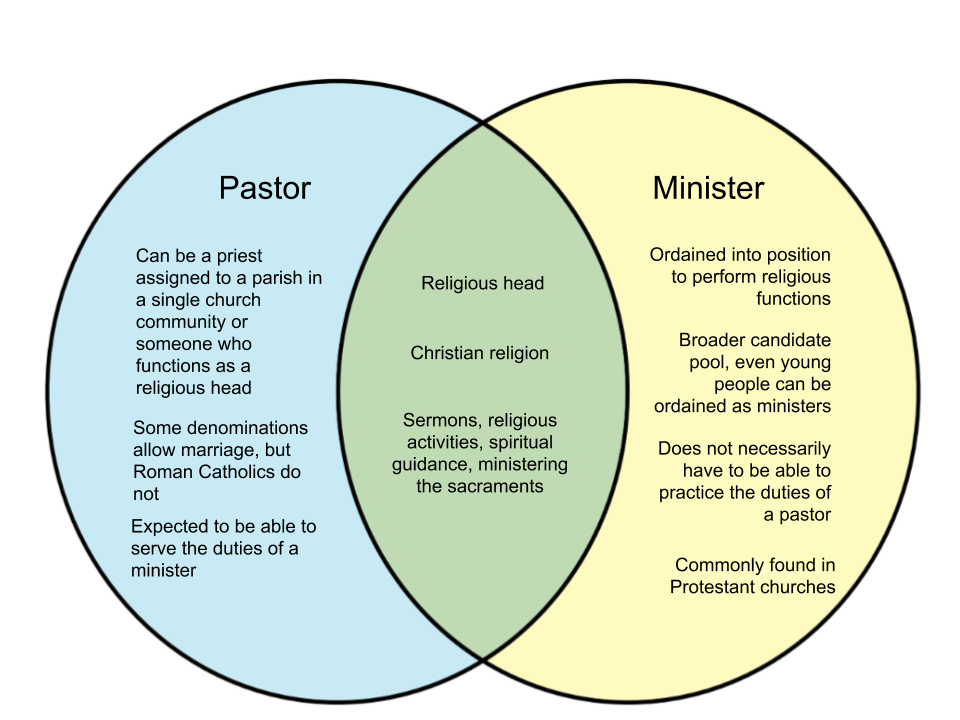The bustling city square was filled with the energy of a thousand conversations, each one a symphony of voices, laughter, and opinions. I found myself captivated by a lively debate between two groups, one holding up brightly colored pamphlets while the other carried rosaries. As I listened closely, I realized they were discussing their differing beliefs. One group identified as evangelical Christians, the other as Catholics. The passion in their arguments was undeniable, and it sparked a question in my mind: What are the fundamental differences between these two branches of Christianity?

Image: olympiapublishers.com
This question, echoing through the busy square, is one that many people have pondered. Exploring these differences is essential to understanding the diverse landscape of Christianity and promoting respectful dialogue between different faith traditions. This article aims to shed light on the key distinctions between evangelical Christianity and Catholicism, examining their historical roots, theological perspectives, and contemporary practices.
Understanding the Differences: A Closer Look
To understand the differences between evangelical Christianity and Catholicism, we need to step back and define these terms. Evangelical Christianity is a broad term encompassing a diverse range of Protestant denominations and independent churches united by their emphasis on personal conversion, the authority of the Bible, and a passionate commitment to evangelism. Catholicism, on the other hand, is a branch of Christianity that traces its roots back to the early church and emphasizes the authority of the Pope as the successor of St. Peter. These two traditions share the foundational tenets of Christianity, including belief in God, Jesus Christ as the Son of God, and the importance of the Bible. However, significant differences emerge in their interpretations of these core principles and how they express their faith.
Key Differences in Belief and Practice
1. The Role of Scripture and Tradition
Evangelical Christians often prioritize the Bible as the sole source of religious authority. They believe that the Bible is inerrant, meaning it is without error in its original manuscripts. Catholics, on the other hand, accept the Bible as a source of revelation but also acknowledge the importance of tradition, embodied in the teachings of the Church Fathers, pronouncements of the Pope, and centuries of church practices. They believe that tradition helps interpret and clarify the message of Scripture.

Image: www.pinterest.com
2. The Role of Sacraments
Evangelicals generally recognize two sacraments: Baptism and the Lord’s Supper/Holy Communion. Catholics recognize seven sacraments: Baptism, Confirmation, Eucharist, Penance, Anointing of the Sick, Holy Orders, and Matrimony. Sacraments for Catholics are seen as outward signs of inward grace, offering a tangible way to experience God’s presence and receive spiritual blessings.
3. Understanding Salvation
Evangelical Christians often emphasize the concept of “born again” as the means to salvation. They believe that individuals must accept Jesus Christ as their personal savior and make a conscious decision to follow him. Catholics, while also believing in salvation through Jesus Christ, emphasize the role of grace, good works, and participation in the Church’s sacraments. Both traditions recognize the importance of faith in Jesus Christ, but they differ in how they understand the path to salvation and what constitutes a valid response to God’s grace.
4. Authority and Leadership
Evangelical churches are typically more decentralized, with each local church having a significant degree of autonomy. The authority structure can vary, with some churches emphasizing congregational governance while others follow a more hierarchical model. Catholicism has a centralized hierarchical structure with the Pope as the head of the Church. Dioceses, led by bishops, are responsible for the local administration of the Church. This centralized authority structure is seen as a necessary safeguard of the Church’s teachings and traditions.
Contemporary Trends and Developments
In recent years, there has been a growing openness to dialogue and understanding between evangelical Christians and Catholics. The Catholic Church has actively sought to build bridges with other Christian denominations, including evangelicals, through initiatives like the World Meeting of Families. Evangelical churches have also shown a greater willingness to engage in interfaith dialogue and work for common goals, such as addressing social justice issues. The rise of social media has also created new opportunities for connection and collaboration between these different Christian traditions.
Tips and Expert Advice
For those interested in learning more about evangelical Christianity and Catholicism, here are some tips:
- Engage in respectful dialogue: Approach conversations with an open mind and a willingness to listen to different perspectives.
- Read books and articles: Explore theological and historical works from both evangelical and Catholic authors to gain a broader understanding of their perspectives.
- Visit churches and events: Attending church services and events can provide valuable insights into the practices and beliefs of different traditions.
By fostering open communication and genuine understanding, we can create a more inclusive and respectful society that values the contributions of all Christian traditions.
Frequently Asked Questions
1. Are evangelical Christians and Catholics both Christians?
Yes, both evangelical Christians and Catholics are branches of Christianity. They share core beliefs about God, Jesus Christ, and the Bible, though they interpret these tenets in different ways.
2. What are the main differences between evangelical Christianity and Catholicism?
The main differences lie in their interpretation of Scripture and tradition, their understanding of sacraments and salvation, and their organizational structures.
3. Can evangelical Christians and Catholics be friends?
Absolutely! Despite their theological differences, evangelical Christians and Catholics can build strong and meaningful relationships based on shared values and a common faith in Jesus Christ.
Evangelical Christian Vs Catholic
Conclusion
The differences between evangelical Christianity and Catholicism are significant but should not hinder respectful dialogue and understanding. Both traditions offer valuable contributions to the Christian world, enriching the tapestry of faith with diverse perspectives and practices. By recognizing and appreciating the unique expressions of faith within Christianity, we can foster a more welcoming and inclusive community.
Are you interested in learning more about the differences between evangelical Christianity and Catholicism? Share your thoughts and questions in the comments below.






